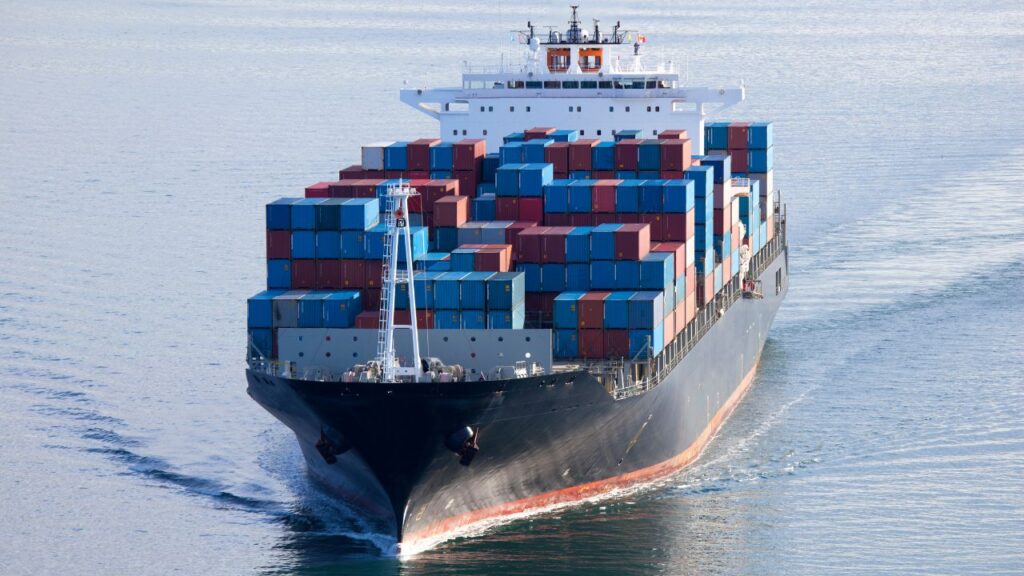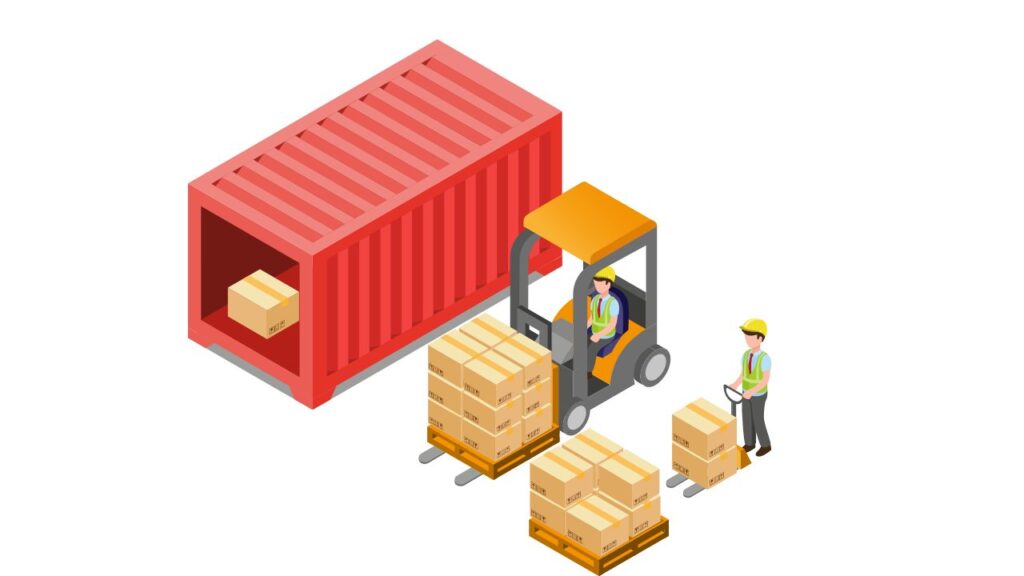Massive merchant ships from one country to another deliver solid bulk goods to different ports with thousands of tons of shipping containers. From salt, cereal, milk, and oil, much more is delivered through bulk carrier ships to ports globally.
This article will shed light on what bulk shipment or bulk shipping is.
What Is a Bulk Shipment?

Bulk shipment is a large number of goods or products that are loaded into large shipping vessels without the final packaging. Such bulk goods are sent on massive, metal shipping containers on deck through shipping vessels.
These are made to ensure long journeys across the world. Further, these large merchant vessels are not ideal for in-time inventory shipments. These are economical eCommerce bulk shipping solutions for the B2B model and those selling wholesale.
How Does Bulk Shipping Work?

Remember that bulk shipping is similar to standard or regular shipping. Bulk shipping needs a large amount of space. Here’s how to bulk shipping works:
· Transport to port storage
Bulk items are stored at the ports where they’re shipped from. Your liquid bulk goods are left in a warehouse near the port, or they’re kept in a storage container until shipment.
That’s somewhat familiar to drop shipping, and the storage container is owned by shipping companies that facilitate loading and unloading.
· Load the bulk cargo shipments into a shipping container
Your bulk items, such as industrial or agricultural items and goods, will be stored in the shipping container and hulled into the deck of a shipping vessel. That is done with a crane, and every ship can hold thousands of 20-foot containers.
· Unload at the destination port
The process will be upturned at the destination, and the bulk goods will be loaded into a tanker truck to get to the final destination. They can also be delivered to the bulk cargo storage facility or your own storage space as needed.
Benefits of Bulk Shipping

As you know already, bulk shipping is a process where hundreds of thousands of goods are shipped around the globe. This mode of shipping is helpful to you, especially if you have abundant amounts of goods to send.
This shipping can help retailers guarantee that their cycle inventory is properly managed. On top of that, bulk shipping options are also a great and cost-efficient eCommerce shipping solution for business owners planning to sell wholesale.
What Types of Goods Can I Send with Bulk Shipping?

Are you wondering what type of products you can deliver through bulk shipping? You will find two types of goods available: dry bulk and liquid bulk.
Delivery of liquid and bulky goods
Liquid bulk cargo involves any free-flowing liquid materials involving chemicals such as gasoline and natural gas and consumables such as juice or milk.
Liquid bulk products are shipped via tanks or specialized deposits, which can be loaded with liquids and shipped across long distances.
Dry bulk shipping
Dry bulk or solid bulk cargo needs the usage of bulk storage containers, which are stored and stacked on huge merchant vessels. Dry bulk goods can often include anything from wheat and grains to raw materials such as coal and wood, among other things.
The dry bulk cargo is stowed away by silos, hoppers, cranes, or belts. They are also shipped on vessels, which have a single deck with numerous hatchways.
How Much Does It Cost to Bulk Ship?

Often, bulk shipping rates differ from one company to another. Nonetheless, most shipping companies try to ask more or less the same across the industry. Those costs are computed in US dollars per ton of cargo.
If you want to bulk ship, there are several factors that will affect the cost of your shipment. These include the size and weight of your items, as well as the distance they need to travel. In general, you can expect to pay more for shipping large or heavy items over long distances.
In addition to these basic costs, there may be other expenses involved in bulk shipping. These can include additional fees for packing materials or special services like expedited shipping or insurance.
To get an accurate estimate of how much it will cost to bulk ship your items, you should speak with a shipping company representative about your specific needs and requirements. They will be able to provide you with a more detailed estimate based on the specifics of your shipment.
Overall, it is important to do your research and plan ahead when looking to bulk ship items. With some planning and careful consideration, you can find cost-effective options that work well for your needs.
4 Factors That Influence Bulk Cargo Shipping Costs

The bulk shipping cost is normally computed by different factors that determine shipping costs: distance traveled, size, and weight of the shipment. Nonetheless, the price also keeps changing from time to time because of various market conditions.
Size and weight
These are two crucial factors affecting shipping costs. You must present accurate dimensional weight and volume or mass measurements of the cargo, and each item being transported will have a National Motor Freight Classification number based on its size and weight.
Shipping Distance
The distance traveled often plays a role in impacting bulk shipping costs, but freight rates do not increase on a per-mile basis. As an alternative, a complicated formula is utilized to compute shipping rates considering the type of shipment, destinations, and groups of origin.
Dimensional weight
This considers the shipment’s density in determining shipping costs. Transportation costs may be based on gross weight or dimensional weight, whichever is higher.
Shipping or Freight Class
It involves the shipment’s value and how fragile the items are, and whether or not they could get damaged. On top of that, the product’s handling and loadability characteristics.
Valuable and fragile products often have higher freight classes and hence higher freight rates.
What Are the Differences Between Bulk Shipping and Break-Bulk Shipping?

Bulk shipping and break bulk shipping are terms that can be utilized interchangeably and incorrectly in the course of daily business. You will find unique differences between the two when it comes to customers, terminals, infrastructure, ports, trades, handling, capacity, size, nature, and cargo.
Break bulk is utilized where the cargo is carried in a unitized form like bagged, strapped, drummed, crated, and palletized or non-unitized general cargo like steel or cars. The ships carrying break bulk cargo are known as Break Bulk, Multi-Purpose, or General Cargo vessels.
On the other hand, bulk cargo can have different cargo, which holds under a single deck. That’s so that the cargo might be loaded and carried as a single shipment with cargo in all holds for one customer or numerous shipments with various cargo in separate holds for over one customer.
How Is Break Bulk Cargo Calculated?

Bulk cargo is calculated along the greatest height, width, and length of the entire bulk shipment. The cargo is also weighed. Shipping lines often quote break cargo per freight ton. That is either one cubic meter or one metric ton, whichever yields the highest revenue.
Conclusion
As you can see, bulk shipments and the bulk shipping industry play a role in making sure that various products of daily necessities reach their consumers. Bulk cargo is classified as liquid or solid, and shipping costs are computed based on different factors.
There’s no doubt that bulk shipping can be somewhat useful for agricultural and industrial commodities. However, recollect that it is not made for everybody. Many eCommerce retailers would not be able to use it.
If you need a reliable freight forwarder to send your solid bulk goods, call the DFH team, and we’re here to help you with your bulk cargo shipping.
Frequently Asked Questions About Bulk Shipping
Do you have more information you want to know about bulk cargo shipping? This section will try to answer some of them for you.
What do dry bulk ships carry?
Dry bulk carriers transport massive amounts of dry goods. The shipping vessel falls into about eight different sizes.
Remember that dry bulk carriers are made to carry dry cargo in bulk, such as postrock, alumina, baxite, coal, iron ore, minerals, and grains, among other things. Note that they also bring general cargo like steel products, forest products, and bagged cargo.
What is wet bulk?
Often referred to as liquid cargo, wet bulk is any bulk shipment of a liquid substance. Examples of liquid cargo include liquefied natural gas, petroleum, fruit juice, gasoline, and vegetable oil.
Wet bulk shipments are often categorized into hazardous and non-hazardous, edible and non-edible. These substances come unpackaged and are transported in fuel tanks or heavy-duty storage devices.
What is bulk liquid transportation?
Bulk liquid transportation demonstrates the process utilized to move bulk liquids. Remember that bulk transport can occur over long and short distances due to the liquids not being packed in other containers before going into the truck. An extensive tank wash should take place first.
Also, the equipment should be carefully checked to guarantee no cracks are present.
Bulk liquid transportation for liquid freight includes utilizing a tanker trailer rather than smaller drums or tanks. Bulk liquid transportation often refers to the act of moving liquid freight by truck over long distances.
What are examples of bulk goods?
Some good examples of major dry bulk goods include grain, coal, and iron ore. Such major bulks account for about two-thirds of worldwide dry bulk trade. Meanwhile, minor bulks include steel products, cement, and sugars and cover the remaining one-third of dry bulk trade.
What is the difference between container shipping and bulk shipping?
The difference between these two is that break bulk is about individual materials, which are loaded, shipped, and unloaded from the shipping vessel.
On the other hand, container shipping refers to a storage unit where all the materials stay. Twenty or forty-foot containers are accessible, and various containers like open top, flat racks, and refrigerated for temperature-sensitive shipments.
Which is cheaper, break bulk shipping or container shipping?
Bulk shipping is often more expensive than using container shipping. Overweight or oversized freight requires more space than goods stacked on top of one another. On top of that, break bulk shipping costs more in labor.
Normally, moving break bulk cargo needs more staff than a shipping container does. So, keep that in mind.
What is the most inexpensive way to ship bulk?
UPS and FedEx are the cheapest for packages two pounds or heavier. However, USPS is a lot cheaper for packages that are lighter than two pounds.
What is the meaning of bulk cargo?
Bulk cargo is commodity cargo, which is transported unpackaged in large quantities.
How do I ship items in bulk?
Some tips to help you in your solid bulk shipments are the following:
· Use a strong and robust box because the heavier the items, the stronger box you will need
· Choose a heavy-duty packing tape
· Identify how to ship the bulk shipments based on size and weight
· Consider splitting the quantities of shipment into multiple packages.
Conclusion
Need help arranging Bulk Shipment from China to oversea? Don’t hesitate to Contact with DFH team with rich experience to ship bulk shipments worldwide since 2009.





